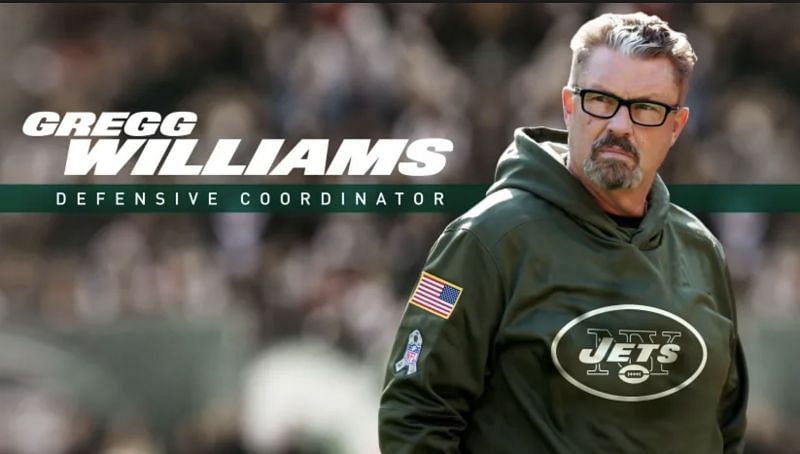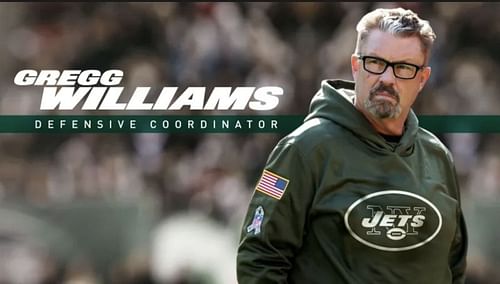
Revisiting Bountygate: Why Gregg Williams should not be drawing interest from NFL franchises

January 16th, 2019, live from Florham Park, New Jersey, at the Atlantic Health Jets Training Center, Gregg Williams was introduced by the New York Jets General Manager, Mike Maccagnan, and Head Coach, Adam Gase, as the team’s new defensive coordinator. This press conference came on the heels of the 2018 NFL season.
That season, Gregg Williams started as the defensive coordinator for the Cleveland Browns but was quickly promoted to interim Head Coach following the firing of Hugh Jackson. He led the Browns to a 5-3 record, leading many media members as well as front office people around the league to believe that Williams would be one of the serious candidates to become the new full-time Head Coach of the Cleveland Browns.
However, after long several weeks of interviews, the Browns ended up promoting offensive coordinator, Freddie Kitchens, to the position of Head Coach rather than Williams.
For people who might not be too familiar with Williams background, he took a franchise like the Browns, that during the Hugh Jackson era, went an abysmal 3-36-1 in two-plus seasons, and led them to a respectable record of 5-3 in his 8 games as the coach.
He also made the Browns’ rookie quarterback and 2018 NFL Draft #1 overall pick, Baker Mayfield, look like a legitimate franchise quarterback. Both of these feats would seem to be good enough to warrant the full-time position as Head Coach of the Cleveland Browns.
However, for those who are all too painfully aware of Williams past, specifically of his time as the defensive coordinator for the New Orleans Saints, they should then know that Williams has abused his power as both a coach and as a leader of men; he did not deserve the opportunity to become a head coach in the National Football League again.
Based on the psychodynamics approach as well as common ethics (not to mention morality), the abuse that Williams committed during his time with the Saints involving the bounty scandal should have prevented him from ever getting another opportunity to hold the position of head coach in a full-time manor in the National Football League again.
The bounty scandal, that I believe disqualifies Williams from earning another head coaching job, took place between the 2009 and the 2011 NFL seasons. During this bounty scandal, members of the New Orleans Saints football team were found to have been paid bonuses (or bounties) by the Saints for plays in which a Saints player would injure another team’s player (usually the player targeted would have a nagging/re-occurring injury or would be the more elite player than the one on the Saints team).
The most notable instance occurred during the 2009 NFC Championship Game between the New Orleans Saints and the Minnesota Vikings when Williams encouraged his players to intentionally continue to knock Brett Favre to the ground with late and unsportsmanlike high/low hits. It was estimated that about thirteen instances of unnecessary hits took place during this game.
Following the conclusion of the following season, an investigation began when NFL officials received an anonymous tip from a player that Gregg Williams instructed his team to target quarterbacks Kurt Warner and Brett Favre in back-to-back games during the 2009 NFL postseason in accordance to Williams’ bounty program.
It was estimated that between twenty-two and twenty-seven players on the 2009 New Orleans Saints team participated in Williams bounty program that provided non-contract bonus incentives, something that is generally frowned upon by the NFL league office in Manhattan.
Williams created the bounty program immediately after being hired by New Orleans before the 2009 season (a system that Williams also implemented while working for the Washington Redskins. Then he would pay players as much as $8,000 for knocking one of the opposing team’s players out of the game, i.e., “killshots” as Williams called them) that consisted of he and the players involved pooling their money and giving out bonuses for making dirty and unnecessary hits.
It was also further discovered in the investigation that the Saints Head Coach, Sean Payton, had tried to cover up the bounty from the league office and that GM Mickey Loomis, who had been ordered by team owner Tom Benson to shut it out down, failed to do so.
The result of this bounty scandal resulted in one of the most severe punishments that the NFL had ever administered during its 92 years of existence at the time. Head coach, Sean Peyton, was suspended for the entire 2012 NFL season, GM Mickey Loomis was given an 8-game suspension, several Saints players were given multi-game suspensions, the Saints franchise was fined $500,000 and lost both their 2nd round draft picks in 2012 and in 2013.
The defensive coordinator Gregg Williams, who had left the Saints following the conclusion of the 2011 NFL season to take the same position with the St. Louis Rams, was given an indefinite ban from coaching in the NFL that was ultimately lifted following the 2012 NFL season.
So what could Williams have done differently to prevent such an awful outcome from occurring for not just himself, but also for the Saints franchise? It would seem that the obvious choice would have been for Williams to have not behaved in such a deplorable manner and to have ordered intentionally and potentially career-ending injury on other players of opposing teams.
Not only is what he did morally and ethically wrong, but it also shows really poor sportsmanship and an extreme lapse of judgment on Williams’ part. His repeated actions seem to show that Williams has no character or moral compass at all. One might wonder if he ever thought about what he did or how he slept at night.
From an ethical point of view, Williams’ actions display traits of pseudo-transformational leadership. This is characterized by destructive behaviors, such as having a lack of integrity, being selfish/arrogant, and showing extreme virtues of greed.
That is why, after the New Orleans Saints bounty scandal become public information and the Saints were sanctioned by the NFL, that Gregg Williams, the new defensive coordinator of the New York Jets, should not ever be allowed the extremely fortunate and rare opportunity of being a full-time head coach in the National Football League ever again.
Having teams interested in Williams shows how little has changed in the NFL. Further, one needs to change the culture of winning at all costs in order for situations like the Williams’ scandal to stop occurring.